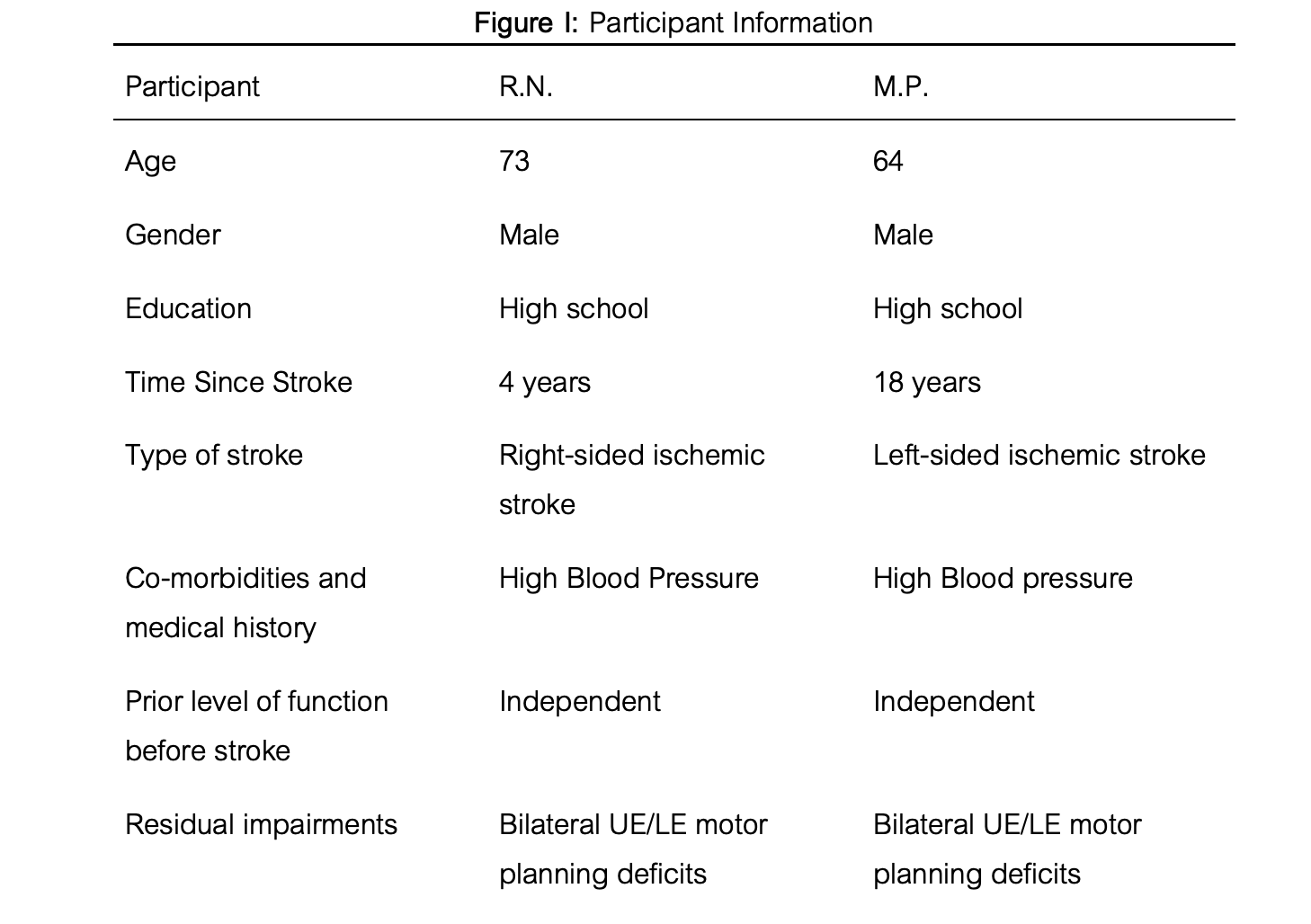Primary Investigators of Research Study: Julianne Madeline, OTD, OTR/L, RYT-200 and Paige Combs, OTR/L
My occupational therapy doctoral capstone project investigated the effectiveness of adaptive yoga as an integrative health approach for stroke recovery and determined the efficacy of a preliminary integrative movement protocol for occupational therapy stroke rehabilitation. Utilizing a mixed-methods approach involving both quantitative and qualitative data, the study aimed to assess the impact of adaptive yoga on upper extremity function and perceived functional benefits in individuals with stroke.
The study included two participants with a history of stroke. The participant information is provided below.
Although the research studied a small sample size, the results of the primary outcome measures suggest integrating adaptive yoga into stroke rehabilitation may improve upper extremity function as well as perceived functional benefits in patients with a history of stroke. The secondary outcome measure results suggest the integrative movement protocol was acceptable and safe as a therapeutic treatment intervention for stroke patient's.
Additionally, this capstone project provides a preliminary protocol for occupational therapists to utilize with stroke patient's as well as a protocol for future research studies to further expand the evidence-based knowledge about integrative health approaches in occupational therapy stroke rehabilitation.
The quantitative results indicated improvements in physical function including passive range of motion, active range of motion, motor control, coordination, strength, and blood pressure. These findings suggest that adaptive yoga may be a valuable adjunct to traditional occupational therapy rehabilitation practices, contributing to improved physical outcomes. Subjective cognitive benefits were also reported, with the two participants in the case series demonstrating enhanced memory and focus findings from the Stroke Specific Quality of Life Scale. The meditation and mindful aspects of the adaptive yoga sessions may play a role in these cognitive improvements, potentially promoting neuroplasticity and aiding in recovering cognitive functions affected by stroke. The qualitative data from Stroke Specific Quality of Life Scale showed improvements in social roles, thinking, and upper extremity function. Although there were improvements in quantitative and qualitative data, due to the small sample size, it is difficult to determine the significance of the data.
The findings suggest that adaptive yoga can enhance physical, cognitive, and emotional recovery in stroke patients, offering a holistic and client-centered approach to rehabilitation. Further research should explore the long-term effects of adaptive yoga for stroke rehabilitation. Additionally, future studies should increase the sample size and diversity, given the participants were both male. By integrating adaptive yoga into stroke rehabilitation programs and addressing the identified challenges, healthcare providers can offer a more comprehensive and effective rehabilitation experience for stroke patients. Embracing this integrative approach may lead to better patient outcomes and a potential improved quality of life for individuals recovering from stroke.
